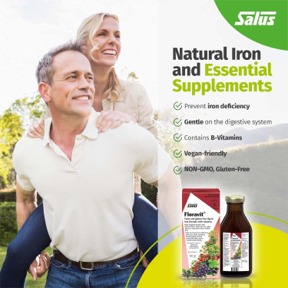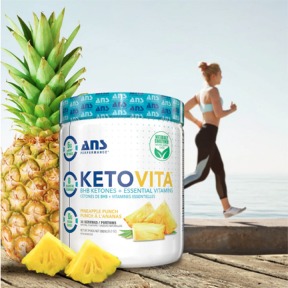
JOY OF THE MOUNTAINS Oil of Oregano (90 Caps)
- Low stock - 8 items left
- Backordered, shipping soon
JOY OF THE MOUNTAIN - Oil of Oregano - 90 Capsule(s) - NPN: 80049011
Joy of the Mountains Oil of Oregano helps:
- Maintain immune function and good health
- Fight off infections by maintaining cell-wall strength against viruses
- Make white blood cells which destroy harmful bacteria and viruses
- Protect against free radical damage with powerful antioxidant action
- Maintain external tissues and membranes as a psychical barrier to infection
- The elderly
- The chronically ill
- Those who have a decreased resistance to infection
- Those who wish to increase their resistance to infection
Oil of Oregano
Oregano is a perennial of the mint family having aromatic leaves. The name Oregano comes from the Greek word meaning "Joy of the Mountain". Four main chemical substances in oregano account for its tremendous healing qualities: alcohols, esters, phenols, and terpenes. Together these important substances are what really make Oil of Oregano such a powerful natural health aid. Phenols, such as carvacrol and thymol, act as antiseptics and antioxidants, while terpenes, which include pinene and terpinene, exhibit antiseptic, antiviral, anti-inflammatory and anesthetic properties. Linalool and bonreol are two long-chain alcohols found in oregano oil, which add to the antiviral and antiseptic qualities. Esters are potent antifungal agents. Two that are found in abundance in oregano oil are linalyl acetate and geranyl acetate.
Some uses for Oregano oil include:
- Immune stimulant
- Antibiotic and Antiseptic
- Food Poisoning
- Anti-viral
- Allergies
- Antioxidant protection
- Fungal Infections
- Candida
- Parasites
Supporting the Immune System
The immune system is the police force of the body. It is a complex system of cells that defend the body from invading organisms, regulate inflammation and control abnormal cell growth. Many organs are involved in the immune response, the bone marrow, lymphatic system, thymus, liver and spleen. Bone marrow produces red blood cells, white blood cells and platelets.
The spleen is a location where immune cells can monitor the blood for foreign matter. It also speeds up red blood cell production and activates blood clotting. The liver can increase body temperature and induce sweating to help fight off infections. The thymus produces B cells, which make antibodies, and T cells, which are part of the immune response.
The immune system is capable of fighting off intruders and remembering them so that they are killed off quickly if they invade again. The immune system must be able to differentiate self from non-self in order to know what to attack. If it does not recognize the body's own tissue than autoimmune diseases occurs.
- Optimize the health of your immune system by:
- Consuming a nutrient-rich diet from a wide variety of foods.
- Exercising regularly.
- Maintaining regular sleeping habits.
- Limiting exposure to environment toxins and medications.
- Supplement with immune supporting and nutrients.
Healing with Oregano
Oregano is a well-known spice in Italian cooking. This plant is just as useful in the medicine cabinet as it is in the kitchen ...
Oregano extracts have antibacterial, antiviral and antifungal activity!
Chronic infections, like candidiasis, and contagious new viruses, like SARS, seem to be inhibited by oregano. Oregano not only kills infecting microbes in the respiratory tract but also acts as an expectorant (helps to expel mucus) and antispasmodic (relieves coughing).
In the digestive tract oregano soothes digestion and decreases diarrhea, by stopping intestinal spasms. It also kills gastrointestinal microbes and decreases gas and bloating. There are some theories that Crohn's and Colitis may have a triad of predisposing factors, including an unbalanced gut flora, and a trigger, commonly physical or emotional stress, and a bacterial or microbial invasion of some sort. Given this theory, studies are currently investigating the use of oregano oil to treat these IBD conditions. Animal studies are already showing promising results.
Topical Use of Oregano Oil
Oregano can be used topically for skin infections, like Athlete's foot, ringworm and folliculitis. Oregano is useful for treating colds, sore throats, coughs, chronic respiratory conditions, yeast infections, viral infections, bacterial infections, diarrhea and indigestion.
I personally use oil of oregano a few times throughout the first day or two I am feeling a sore throat coming on. I can say, without exception, that the sore throat never progresses and symptoms have disappeared within a couple days of starting the oregano oil.
Forms of Oregano
Oregano can be purchased as a loose herb, encapsulated herb, spice or essential oil. The loose herb can be made into a poultice for topical application, used for inhalation or drank as a tea for internal use. Oregano may be included in combination teas for soothing digestion. The spice is often added to dishes for prevention of bacterial contamination.
Oregano Strengths
The essential oil of oregano is a highly concentrated substance. It comes in various strengths, sometimes referred to as a percentage (i.e.: P73). Make note of the phenol carvacrol, one of the most active ingredients in oregano, responsible for the majority of its medicinal benefits. A carvacrol content of 70 % or more is optimal.
Externally, you can apply to almost any affected area, although use extreme caution when treating highly sensitive mucosal membranes, such as the vagina and anal areas. It is highly recommended, when treating these areas that you use a carrier oil to dilute the essential oil. Olive, almond or coconut oils are all good options. Before applying externally, you may want to test a small area of skin with the non-diluted essential oil, to ensure there is no reaction or determine is dilution is necessary. A few drops of oil of oregano can be added to shampoos to treat dandruff, eczema or seborrheic dermatitis of the scalp. It can also be rubbed (using fingertip) on the gums to treat and prevent gingivitis, as well as a few drops added on your toothbrush to kill germs and treat bad breath.
When taking internally, 1-3 drops under the tongue, 3x/daily is a typical dosage. Acutely, you can do up to 3 drops every hour for the first day you are experiencing signs and symptoms of cold, flu or food poisoning (for up to 10 hours).
Essential oils can be toxic when taken internally in high doses. Oil of oregano should not be used in pregnancy or lactation. If using long-term, consider taking breaks and repopulating/supporting healthy gut flora with the use of probiotic or with herbs such as slippery elm.
INGREDIENTS
Oregano Essential Oil ... 36 mg
Non Medicinal Ingredients
Hypromellose, Lecithin, Olive Oil,
Use collapsible tabs for more detailed information that will help customers make a purchasing decision.
Ex: Shipping and return policies, size guides, and other common questions.








